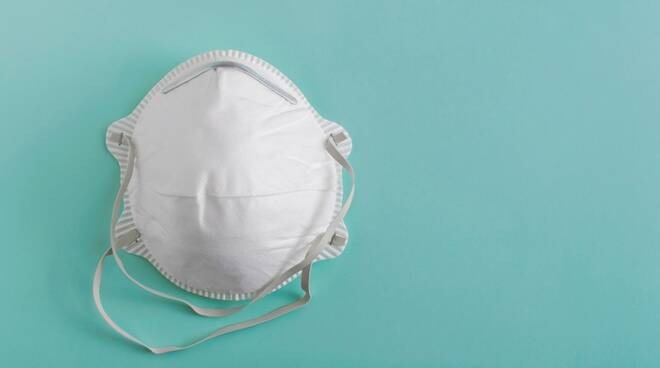
The world appears to be no longer the way we knew it. Across the globe, governments have taken unprecedented emergency measures in response to the ongoing pandemic crisis. Countrywide lockdowns are imposed to protect public health and safety. Movements are restricted, borders are closed. Non-essential factories and businesses are shut down.
The pandemic crisis has the potential to affect the human rights of millions of people. This is true not only, or even primarily, due to the deaths COVID-19 will cause, but rather due to the policies our governments are introducing or refusing to introduce. While certain limitations on fundamental freedoms are unavoidable during public health crises, some governments may be tempted to use the crisis as a pretext to infringe upon rights.
The present contribution aims at pointing out two significant ways coronavirus may affect human rights.
ECONOMIC INJUSTICE
This health crisis will most likely generate enormous repercussions on the global economy. Predictions say a recession will probably take hold of many countries worldwide this year. Global supply chains have already been disrupted by COVID-19, which has led to reduced manufacturing and factory closures.
Experts believe that the crisis will have a disproportionate impact on lower-wage workers, women and migrants. Economic, social, and cultural rights will be at distress, including the human right to work, to education and to social security. Pursuant to the International Covenant on Economic, Social and Cultural Rights, States are bound to ensure minimum human rights regardless of their resource constraints. In many jurisdictions, these rights are subject to judicial enforcement.
In Italy, the minister of economic affairs has promised that “nobody will be left alone”. On March, 16 the government adopted an emergency decree worth 25 billion euros to support an already weak economy. The main measures are to provide €1.15bn for the Italian health system and €1.5bn for its civil protection agency.
Other measures are expected to include one-off payments of €500 per person for the self-employed, government support for companies paying redundancy payments to their staff, a freeze on any worker lay-offs, and a cash bonus for Italians still working during the lockdown. The package is also expected to include loan guarantees for businesses hit by the crisis and a moratorium on loan and mortgage payments. There will also be financial support for Italian families that have children at home, and for taxi drivers and postal workers who are continuing to work providing urgent services during the outbreak.
It is hard to estimate how bad the Italian and euro area economic data will turn out to be. Rights groups call the government to create mechanisms so that workers affected by COVID-19 do not suffer loss of income that might deter them from self-isolating to contain the spread of the virus.
RIGHT TO A HEALTHY AND SUSTAINABLE ENVIRONMENT
In just a few short months, millions of people have been put into quarantine and regions locked down to reduce the spread of the coronavirus. As a result of the economic shutdown, the concentration of carbon dioxide emission has fell drastically in many regions.
The European Space Agency released satellite images showing clear drops in levels of nitrogen dioxide over the Po Valley area in northern Italy, which has been hard hit by the spread of the contagious. In China, energy use and emissions reduced by 25% over a two-week period compared to previous years. This is likely to lead to an overall fall of about 1% in China’s carbon emissions this year, experts believe.
While human beings are locked in, nature seems rebirthing: wild animals regain their ecosystems, while the air and waters got rapidly clean. However, experts say there is little to celebrate for these unintended benefits.
On the contrary, the coronavirus pandemic may pose a threat to long-term climate action. Following the health crisis, States and businesses are expected to predilect short term measures to counter the economic depression. This can imply a slowdown in the world’s clean energy transition unless governments use green investments to help support economic growth through the global slowdown.
The International Energy Agency, or IEA, has warned the virus will weaken global investments in clean energy and industry efforts to reduce emissions, and has called on governments to continue to support green economy initiatives.
States are not acting accordingly. For example, the Prime Minister of the Czech Republic recently urged the European Union to abandon its landmark green law focusing on carbon neutrality as it grapples with the virus outbreak.
In sum, the current drop in emissions may be temporary: following the crisis the level of air pollution may resume to previous level, if not worst. In this respect, it must be recalled that the hard-hit Po Valley is one of the most polluted places in Europe. In this region, the exposure to air pollution causes a wide range of health effects including respiratory illness and infections, heart disease, stroke, lung cancer and negative birth outcomes (e.g. pre-term birth and low birth weight).
In this scenario, it must be recalled that the right to breathe clean air is a human right. It stems from the right to a healthy and sustainable environment, along with access to clean water and adequate sanitation, healthy and sustainable food, a safe climate, and healthy biodiversity and ecosystems.
In the aftermath of this crisis, European States will have to continue to meet their obligations related to clean air, including Directive 2008/50/EC.
CONCLUSIONS
The present humanitarian crisis has exposed our fragility, and we are now navigating in uncharted territories. COVID-19 is posing an historical test for our democratic values and legal systems: the economic and climate repercussions of the present crisis will probably have negative impacts on millions of people. States and business alike must adopt human rights response that aims to protect the most vulnerable.
As lawyers, we are committed to justice and human rights. In time of crisis, we will remain vigilant and we will ensure that human dignity and rights will be front and centre in the common efforts.
Il presente articolo, come tutti gli articoli presenti sul nostro sito, fornisce indicazioni generali su temi giuridici trattati volutamente in modo sintetico e senza alcuna pretesa di esaustività ed è finalizzato esclusivamente ad una migliore conoscenza di argomenti giuridici di attualità, sulla base delle richieste che ci vengono formulate dalla nostra clientela. Il presente articolo non intende fornire e non deve essere considerato uno strumento di consulenza legale.



